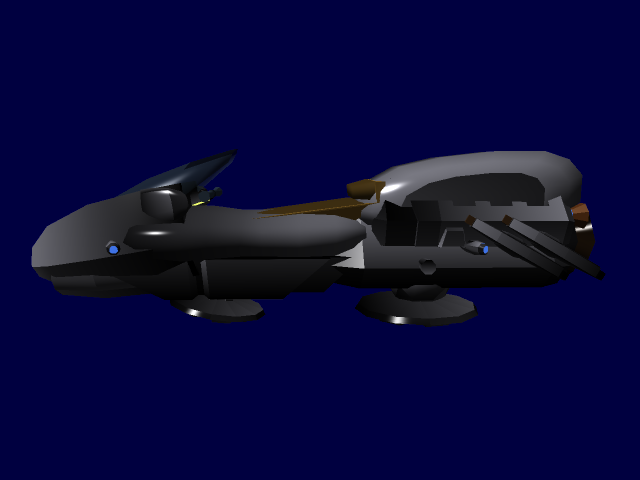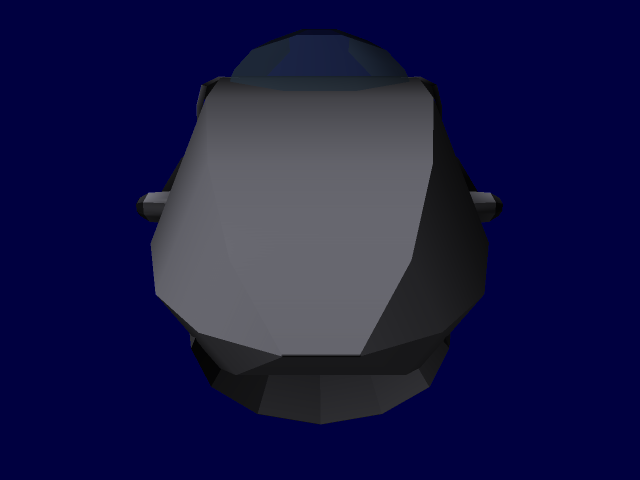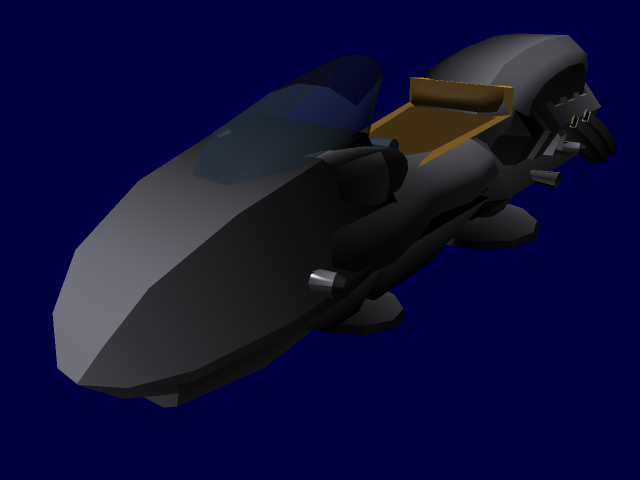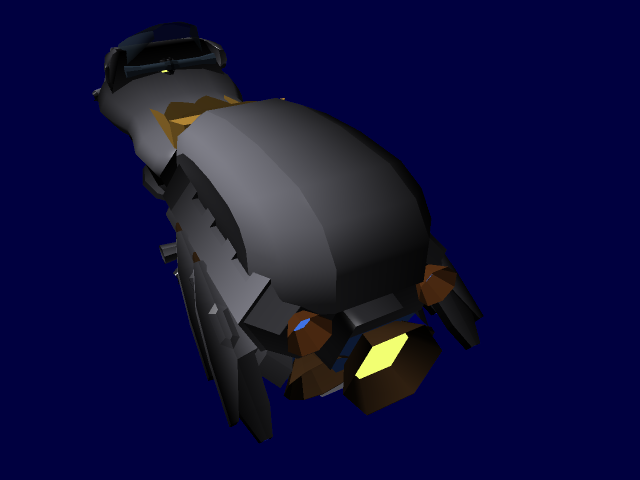Table of Contents
Ac-Y2-1a Ravas Liftcycle
General Information
Type: GE Liftcycle Class: Ac-Y2-1a Ravas Liftcycle Designer: Ushano Biran Manufacturer: Ahmida Civiltech Production: Full Mass Production Pilots: 1 Maximum Capacity: 2 Humanoids (Driver + Passenger) and 40 Kg of Cargo Cost: 8200 KD Appearance: The Ravas Liftcycle is a Supercycle-class (Meaning a Liftcycle designed for optimized performance at the expense of comfort, passenger/load capacity, and other features) vehicle that travels on a light gravity field generated by a pair of GravElectric lifters resting in a lightweight frame (one in the front and one in the back) with a seat that is straddled by the operator along with touch sensitive pads on the handlebars for steering control. The combination of these help maintain structural integrity and chassis rigidity. An airflow system takes in particles from the air and ionizes them to provide thrust out of a rear jet, and steering is achieved with smaller jets on either side of the vehicle. Four small jets surrounding the rear jet provide thrust for vertical movement. The front fairings are shaped to reduce aerodynamic drag as much as possible and provide wind protection for the rider. The high foot pegs move the legs closer to the body and a lower set of hand controls position the body and weight forward and over the supercapacitor.
These overall design traits mean that they are less practical for street use than other Liftcycles. Like other lifter-based vehicles it is capable of handling a wider variety of terrain than wheeled or tracked vehicles. Although it is street-legal vehicle in most planetary areas, there are some Metropolitan communities which prohibit the use of open-topped vehicles due to the increased danger of injury during a high-speed collision. There are few extra features or comforts like those present on touring liftcycles such as larger storage capacity, room for saddlebags, large windshields, or fairings providing protection from rain. Rider position and ergonomics are compromised in favor of weight distribution and aerodynamics. Even though the performance of stock Ravas Liftcycles is so high they can be used on a race track without modification, the vehicle is still a popular target for aftermarket modifications, from flashy cosmetic changes in Metropolitan areas to high-speed performance tuning for racing out in open, rural areas. While the lifter in the Ravas is capable of reaching an altitude of 4 kilometers, racing is mostly done close to the ground since the friction provides much better handling and acceleration characteristics.
Performance
Maximum Speed: 350 km/h (12.9s) Cruising Speed: 120 km/h (4.4s) Acceleration: 7.5 m/s^2 Maximum Altitude: 4 km Minimum Altitude: 27 cm Approximate range: 10,000 km
Key Features
- Helmet with integrated neuroband for communication between the rider and ANIOS
- Ion jets for thrust, lift and steering control.
- Dual forward-facing headlamps (Low and High Beam).
- Locking system that cradles and cushions the arms, legs and lower back.
- Low-spec Multidirectional RADAR.
- Global Positioning System.
- Storage Compartment situated beneath the seat.
Popular Modifications
All prices are for the physical elements only and do not include cost of installation.
- Replacement ion jets for the back that swivel to give the vehicle a smaller turning radius (200 KD)
- Small propellant tanks that expel a gas that moves faster when ionized, giving the Liftcycle a limited speed boost (80 KD for the mechanism, 50 KD for a pair of propellant tanks)
- Lifter tuning for more precise gravity control.
- Superconductor replacements in the Lifter unit to provide a stronger gravitational pulse (1600 KD)
- Various flaring replacements that offer features like bigger windshields or cover the foot pegs to aid in aerodynamics
- A secondary supercapacitor that fits in the storage compartment for a longer operational time. (1450 KD, doubles effective range of the vehicle)
- Signal lights that project light out of the bottom of the vehicle to make the Liftcycle more noticeable at night or when high off the ground. (135 KD)



